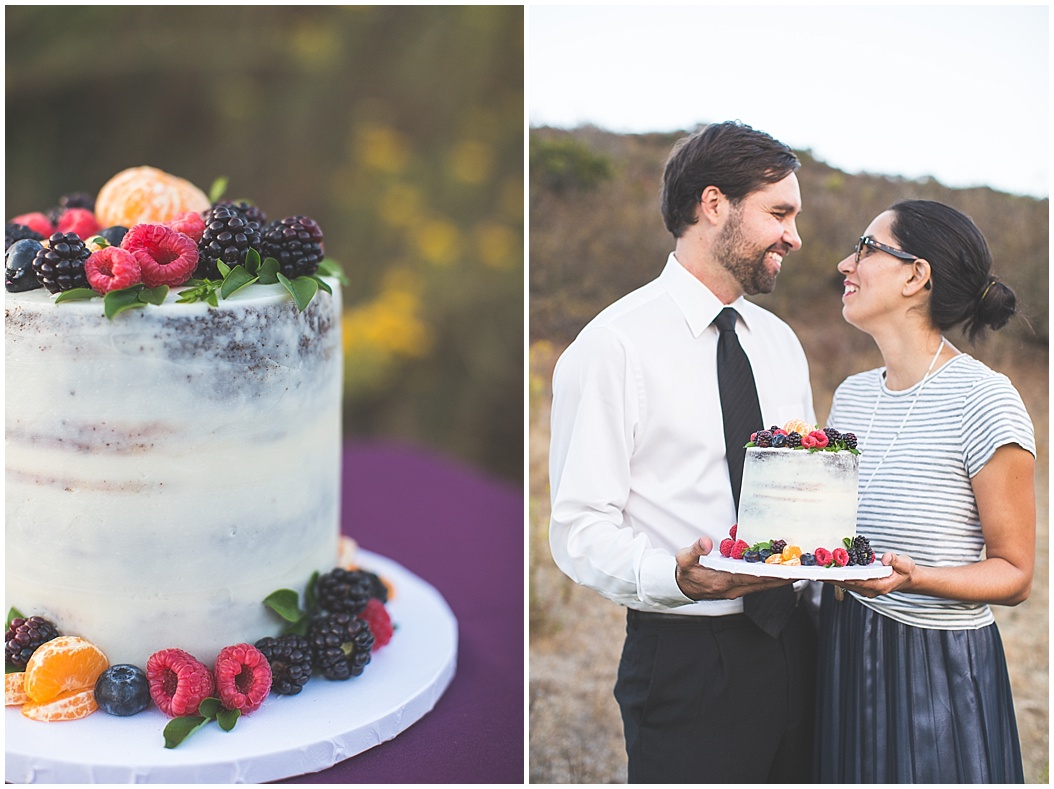Healthy Ways to Talk About You and Your Beloved's Pasts
/STEPHANIE CALIS
Have you and your fiancé’s past relationships--and your actions within them--influenced your engagement?
Before our wedding, my husband and I spoke extensively about regrets from former relationships, in everything from physical boundaries to the ways we’d fought or solved problems with our exes. Our discussions generally felt constructive, and were probably aided by the euphoria of newer love, making us quicker to forgive and express empathy than we might have been otherwise.
Photography: Elizabeth M Photography
It wasn’t until recently, several years into marriage, that the impact of the past hit home for me. My husband and I imagined what we would have thought of each other if we’d met at a younger age. With lightness, trust, and an innocent curiosity in my heart, I asked if I could read some of the messages he’d exchanged with an old girlfriend. That lightness turned heavy as I read through nicknames and jokes so similar to ones my husband had written to me. I quickly clicked the window closed.
I didn’t feel sad that he’d ever had feelings for someone else. It was the echoes of our own relationship I read in his teenage self’s words that unsettled me, making me feel as if our love were somehow less unique.
I should be clear in stating that I don’t blame my husband in any way for this. After all, we didn’t even know of each other’s existence at the time he’d written those words, and essential parts of who we are are consistent in every relationship, romantic and otherwise. Rooted deep in my soul is the knowledge that I have chosen, and been chosen by, a man entirely committed and faithful to me. But it hurt all the same.
What I know now is that my asking to read that correspondence was neither healthy nor constructive. Our relationship has thrived on honest vulnerability about our past mistakes, yet I’ve realized honesty and prudence aren’t always the same thing.
Having already known and discussed my husband’s thoughts and areas of growth from that relationship, my asking to know it in more detail than necessary was fruitless, inflicting fresh salt on wounds that had long ago been cleansed. I wish I’d been more at peace with not knowing. While, in my opinion, it’s important and good to gently reveal your past errors in judgment or sexual sins in a broad sense, I’ve also arrived at the opinion that delving overly into specifics often causes more hurt than healing.
As you and your beloved work through your own past dating experiences on your path to the altar, here are other habits that have helped me do the same.
Ask yourselves the purpose of what you’re revealing.
The right sorts of disclosure--that is, the sorts that bring peace, restoration, and mercy--enable mature love to grow. If you choose to reveal parts of your past as solely as a means of feeling emotionally closer, as an occasion of pride that leads to feeling superior to your fiancé’s exes, or out of prurient interest, chances are these revelations will inspire more division than unity. Be real with yourselves about what purpose your inquiries and revelations serve.
As someone prone to nosiness, I’ve struggled in this area and have grown in greater wisdom and self-knowledge about why I might be asking about certain parts of my husband’s past. It takes ruthless honesty to admit to yourself that your intentions might not be the purest of heart, and to discern whether their fruits would be nourishing or bitter.
Get rid of all items from past relationships.
Though you haven’t yet made your wedding vows, engagement is a time of declared commitment that’s moving toward a specific end: your wedding day. In light of this gravity and forthcoming permanence, these months of preparation are an ideal time to get rid of any lingering possessions, gifts, texts, and emails from the past. Even if you and an ex have remained in each other’s orbit by choice or circumstance, it’s healthy to remove items with romantic significance from your life. It’s a gesture of faithfulness, and of turning forward in hope, to your fiancé.
Appreciate who you are now, not who you were then.
Conversion is a powerful thing. Saints are made along the path of reconciliation and virtue. Matters like past emotional entanglements and sexual sins, though, aren’t small; feeling their sting months and years later is normal. It’s valuable to keep in mind not just that the past is the past, but that who your beloved used to be--in all his or her weaknesses or poor choices--is also the past. Praise the Father for the gift of who your fiancé is, and for all the experiences that have brought you to the present.
If necessary, don’t fear professional assistance.
Premarital counseling or therapy doesn’t mean you’re weak.
If one or both of you have struggled with addictions and sexual sin, a Catholic counselor can provide spiritual and emotional tools to facilitate healthy communication.
And if one or both of you have been through any form of sexual abuse or assault, know, above all, that in the Father’s eyes you are nothing less than whole, blameless, and worthy of love. Working through these experiences together, with a counselor, helps cultivate trust, intimacy, forgiveness, and true peace.
Give every part of yourselves to the Lord.
If you struggle with aspects of your pasts, ask for the grace of healing. During a guided holy hour on a retreat I once attended, a priest advised asking Christ in prayer to reveal to us what wounds in our lives he desired to reveal. Sit with these wounds and confront them as they surface, he instructed, and then visualize giving them back to Jesus. Christ, the ultimate beloved of our hearts, desires so deeply to share our heartaches and, moreover, to redeem them.
Resolve to forgive, no matter what.
Forgiveness might take a long time. That’s alright. I encourage you and your fiancé, however, to promise one another that no matter what, you will eventually forgive all past wrongs. Grudges are poison; a source of doubt that limits true freedom. Trust in each other, and in your love, and you will reveal the Lord’s mercy to one another.
There have been times in our relationship where I’ve badly desired the will to forgive my husband and move on, even as I struggled to get my bruised heart on board. I feel thankful that even while upset, I’ve frequently sensed the Lord’s peace amid the storm within. In that peace, I have so strongly felt the certainty that I would forgive, even if I wasn’t ready at the moment. I never doubted I would, and prayed I could feel ready to do so quickly. Let me let go of this, I begged. Help me trust in this certainty.
Never lose sight of prayer for your fiancé, yourself, and your relationship. Prayers of agony, of asking for the grace to diminish or remove former sins from your memory, and even prayers of thanksgiving for the emotional weight of dealing with the past are all more than acceptable.
Our every prayer is a delight to the one who so ardently asks for our total trust: Jesus, I trust in you.
In the times I experience that deep conviction of forgiveness, I thank God for these gifts of trust. Gifts that have affirmed to me my husband’s deep goodness and the ways in which our hearts are so specifically suited to one another’s. I hope, truly, for you and your fiancé to be flooded with similar graces: filled with his peace, living examples to one anotherof divine love and mercy.
About the Author: Stephanie Calis is Spoken Bride's Editor in Chief and Co-Founder. She is the author of INVITED: The Ultimate Catholic Wedding Planner (Pauline, 2016). Read more















































